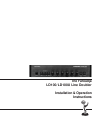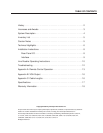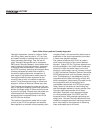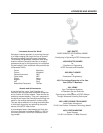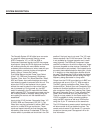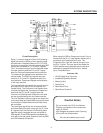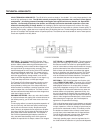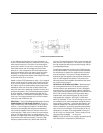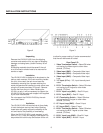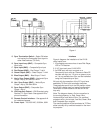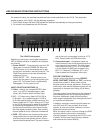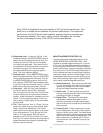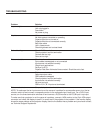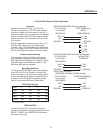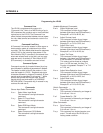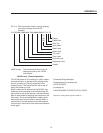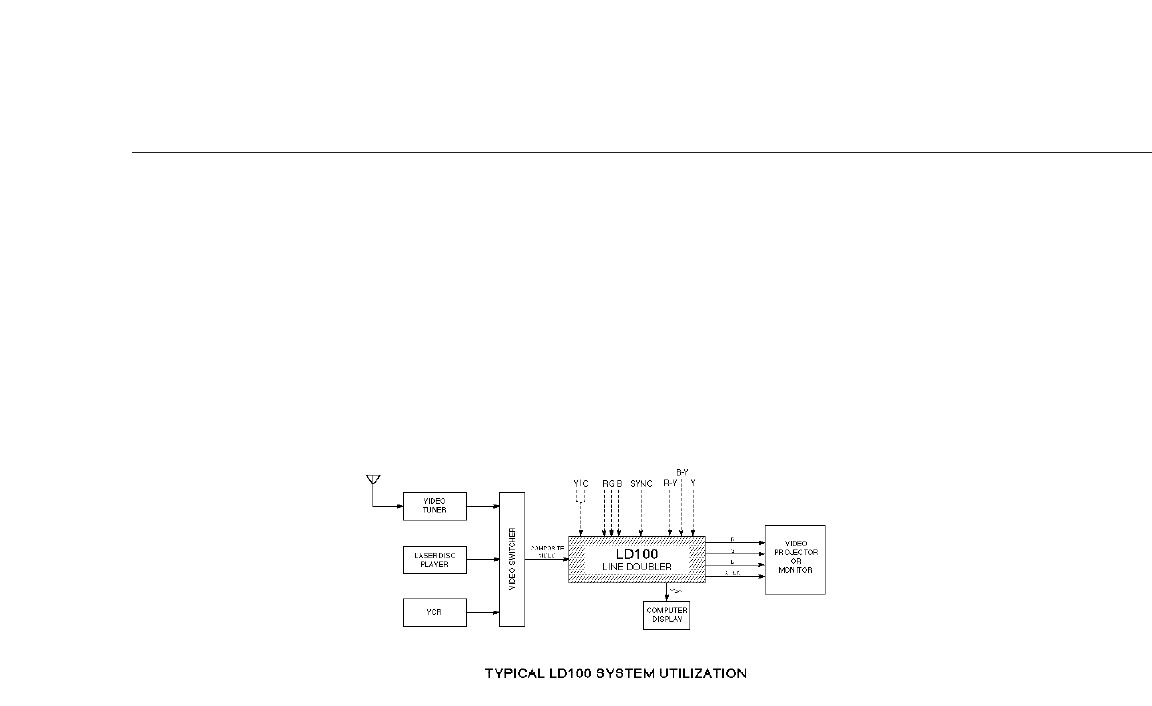
7
on two different mechanisms. Horizontal resolution is a
function of bandwidth (frequency response) of the circuitry
while vertical resolution is a function of the scanning fre-
quency (the number of scan lines in each picture). Given
these mechanisms and the average size picture tube
being 8-10”, they designed the 525 line broadcast stan-
dard so that viewers would not see the scan lines when
watching TV. They had no idea that someday people
would be projecting home theater video images with diag-
onal screen sizes of 10’ and more.
Based on those NTSC parameters, using a 10 ft. diagonal
screen, would require the viewer to be located more than
45 ft. from the screen to see the picture as it was intend-
ed, without scan lines! Unfortunately, today’s large screen
installations have scan lines that are quite visible, espe-
cially with some of the latest high resolution monitors and
projection televisions. The LD100 eliminates this problem
by scan doubling, or digitally doubling the 525 lines to
become 1050 lines. The result is the elimination of visible
scan lines. The image produced by the LD100 is clearer,
continuous and virtually film-like.
SECTION C – The LD100 Bandwidth Expansion Circuitry:
SHARPENING OF THE IMAGE DETAILS – There is a
major limitation with most contemporary NTSC program
sources — lack of frequency response. The best video
sources such as satellite dish reception and laserdiscs
can provide acceptable resolution (400 plus lines of hori-
zontal resolution). Other more common sources however,
such as VHS tapes (230 lines), are clearly deficient. The
problem is compounded when one doubles the scan lines
and performs other signal processing. The lack of high
frequency detail becomes very obvious with almost all
sources. The resultant picture is free of scan lines but dull,
with a serious loss of definition. The solution is to expand
the high frequencies without producing annoying and pic-
ture degrading artifacts.
The bandwith expansion circuitry in the LD100 is excep-
tionally sophisticated, using Faroudja’s double differentia-
tion techniques to sharpen the edges of both horizontal
and vertical details. The result is a sharply detailed line
doubled image that appears crisp and three dimensional
with no visible negative side-effects. This process can
effectively double the bandwidth and therefore the resolu-
tion of the incoming signal.
FAROUDJA LD100 APPLICATIONS – While the techni-
cal accomplishments of the LD100 represent years of
intense research and development, its use is straightfor-
ward and direct. The block diagram (above), illustrates a
typical home theater system configuration and shows how
the LD100 would be inserted in the signal path. Many
entertainment sources benefit greatly by the LD100’s
unique attributes; laserdisc, VHS video, S-VHS video,
cable TV, broadcast TV, etc. The LD100 has proven to be
an invaluable tool in other presentation disciplines where
image quality is important – computer data displays, pro-
fessional installations in boardrooms and media rooms,
military installations, government agencies and academic
uses in schools and colleges. From the quality of its indi-
vidual parts to its state-of-the-art patented circuitry, the
LD100 is truly in a class by itself. There is simply no finer
video processor available . . . at any price!
NOTE: The LD100 (NTSC only version) operates properly
with 50Hz 625 line component or RGB sources.



